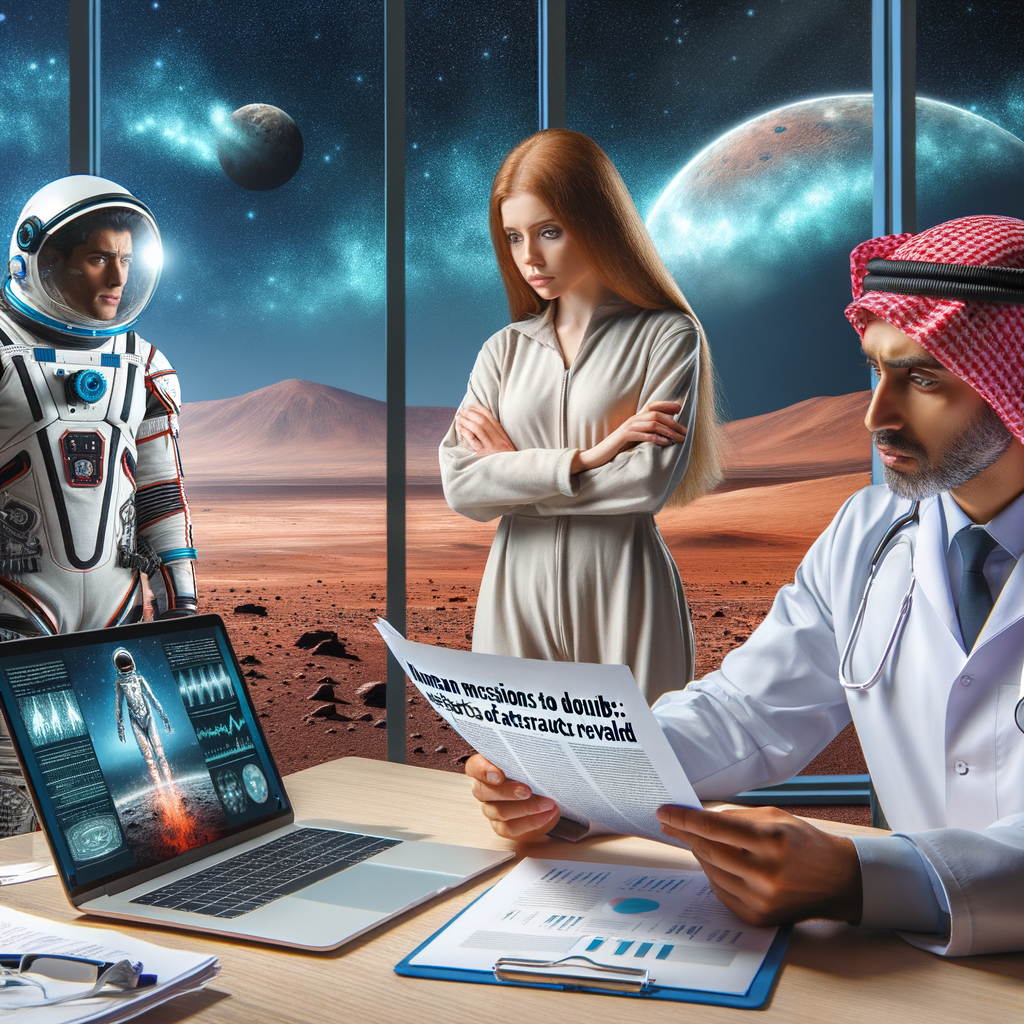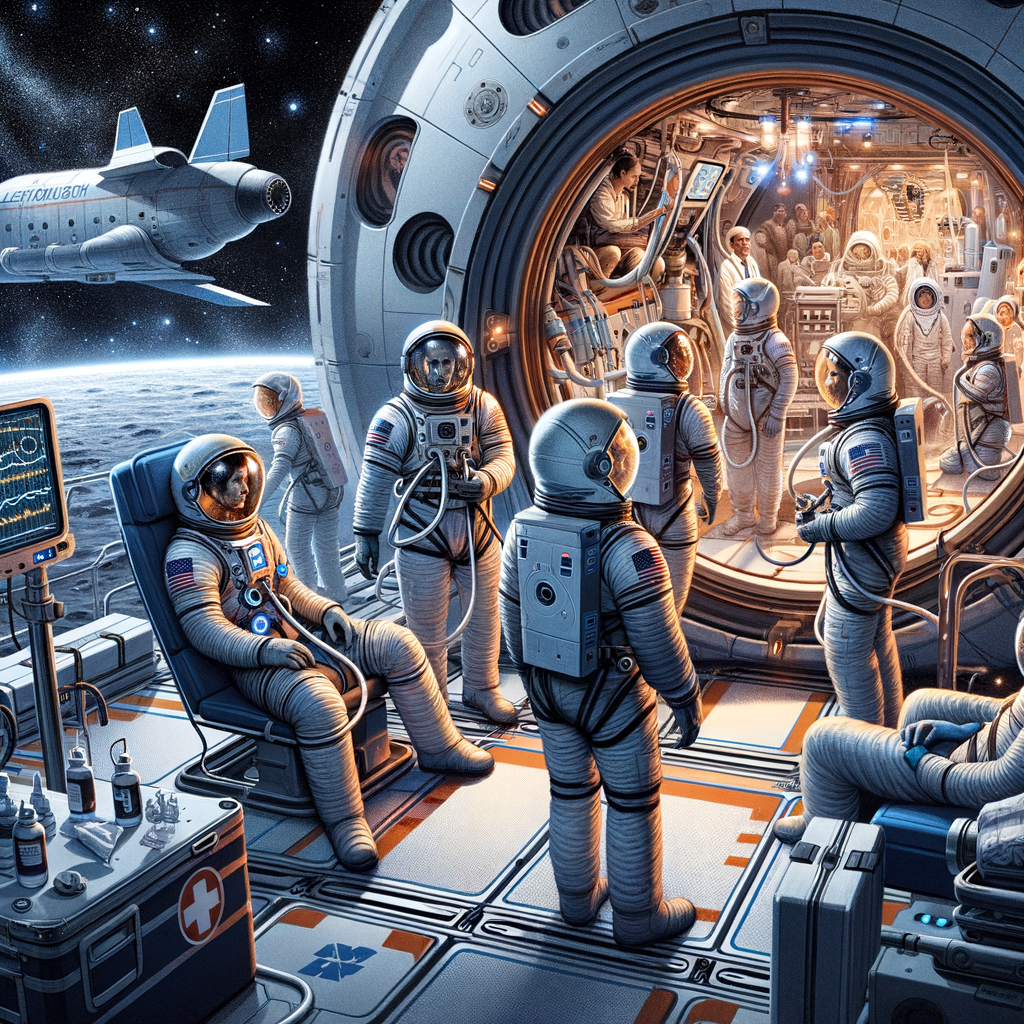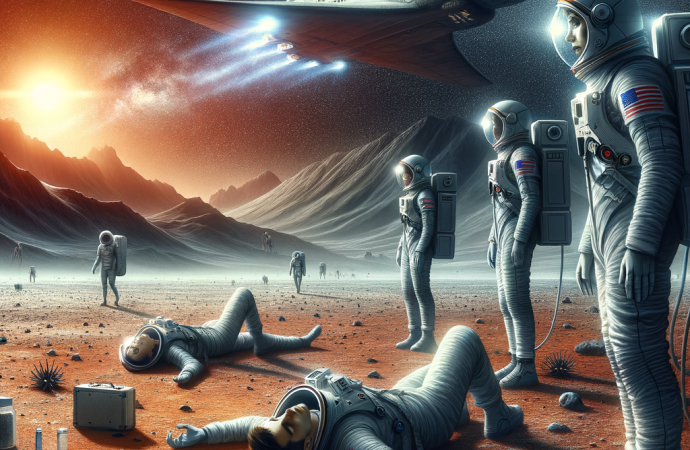Introduction The ambitious dream of sending humans to Mars has been dealt a major blow following startling revelations about the profound and potentially irreversible toll that space travel beyond the Earth’s protective magnetic field would exact on astronauts’ bodies. A comprehensive study commissioned by NASA and conducted by an international team of renowned scientists has
Introduction
The ambitious dream of sending humans to Mars has been dealt a major blow following startling revelations about the profound and potentially irreversible toll that space travel beyond the Earth’s protective magnetic field would exact on astronauts’ bodies. A comprehensive study commissioned by NASA and conducted by an international team of renowned scientists has yielded alarming findings that raise serious doubts about the feasibility and safety of long-duration human missions to the Red Planet.
Cosmic Radiation: A Silent but Deadly Threat
Prolonged exposure to cosmic radiation – high-energy particles originating from the sun and beyond our solar system – was found to be the primary culprit behind the detrimental effects observed in astronauts’ bodies. Unlike Earth’s atmosphere and magnetic field, which effectively shield us from cosmic radiation, space beyond low Earth orbit offers little protection against this harmful bombardment.
The study’s findings revealed that even relatively short periods of time spent outside the Earth’s magnetosphere can lead to a range of severe health consequences, including:
- Increased risk of cancer: Cosmic radiation damages DNA, increasing the likelihood of developing various types of cancer, including blood, lung, and gastrointestinal malignancies.
- Damage to the central nervous system: Astronauts exposed to prolonged cosmic radiation exhibited deficits in cognitive function, memory, and motor skills.
- Weakened immune system: Cosmic radiation suppresses the immune system, rendering astronauts more susceptible to infections and diseases.
- Accelerated aging: The study found evidence of accelerated aging in astronauts’ cells, indicating that space travel may shorten their life expectancy.

Picture by: Dalle-3
The Cumulative Effects: A Nightmare Scenario
The study’s most alarming revelation was that the effects of cosmic radiation are cumulative, meaning that the longer an astronaut spends in space, the greater the risk of developing serious health problems. This presents a formidable challenge for long-duration missions to Mars, which would require astronauts to spend several years in deep space.
Considering the potential cumulative effects of cosmic radiation, scientists estimate that a human mission to Mars could increase an astronaut’s lifetime cancer risk by up to 50%, and their risk of cardiovascular disease by up to 30%. The study also raised concerns about the potential for neurodegenerative diseases, such as Alzheimer’s and Parkinson’s, among astronauts who undertake prolonged space missions.
Shielding Solutions: A Herculean Task
The study’s findings have cast doubt on the adequacy of current shielding technologies to protect astronauts from cosmic radiation during Mars missions. While NASA and other space agencies are actively researching and developing more effective shielding solutions, the findings suggest that substantial advancements are needed before human missions to Mars can be deemed safe.
The required shielding would need to be extremely robust and heavy, posing significant challenges for spacecraft design and launch capability. Moreover, the practical implementation of such shielding would likely drive up the cost of Mars missions significantly, potentially making them financially unfeasible.
Psychological and Ethical Considerations
The study’s findings also raised important psychological and ethical considerations. Prolonged isolation in space, combined with the knowledge of potential health risks, could have profound psychological effects on astronauts. The study recommended that NASA and other space agencies conduct thorough assessments of the psychological impact of Mars missions on astronauts and their families.
Additionally, the study raised questions about the ethical implications of sending humans on missions with known health risks. While the pursuit of scientific knowledge is important, researchers and policymakers must carefully weigh the potential benefits against the risks to human life.

Picture by: Dalle-3
A Sobering Reckoning: Reassessing Mars Mission Goals
The study’s findings have forced NASA and other space agencies to reassess their plans for human missions to Mars. While the long-term goal of establishing a human presence on the Red Planet remains, the timeline and feasibility of such missions are now in question.
NASA has announced a delay in the timeline for its planned Mars mission, originally scheduled for the 2030s. The agency has also stated that it will conduct a comprehensive review of the study’s findings and incorporate them into its planning for future missions.
Alternative Approaches: Robotic Precursors and International Collaboration
In light of the challenges posed by cosmic radiation, NASA and other space agencies are considering alternative approaches to Mars exploration. One such approach involves sending robotic missions to the planet as precursors to human missions. These robotic missions could further assess the risks and search for potential shielding solutions.
International collaboration will also play a crucial role in advancing Mars exploration. By pooling resources and expertise, space agencies from around the globe can increase the likelihood of success and reduce the overall costs of Mars missions.
Conclusion: A Path Forward Amidst Uncertainty
The discovery of the devastating effects of cosmic radiation on astronauts’ bodies has cast a shadow over the dream of sending humans to Mars. While the findings do not rule out Mars exploration entirely, they do necessitate a sobering reassessment of the risks involved and the timeline for achieving this ambitious goal.
Further research and technological advancements are urgently needed to develop effective shielding solutions and mitigate the health risks posed by space travel beyond Earth’s protective magnetic field. International collaboration and the pursuit of alternative approaches, such as robotic precursors, will be essential in overcoming the challenges and paving the way for the eventual realization of human missions to Mars.
















